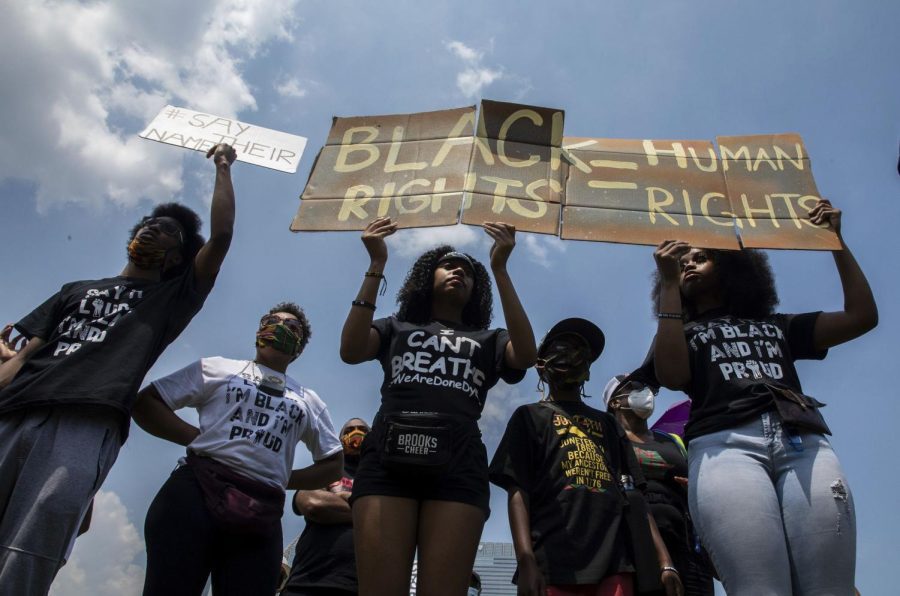Letter to the Editor | Social workers should acknowledge racial injustice
Photo courtesy of Zbigniew Bzdak/TNS
Danielle Jones and Brianna Campbell hold a sign as thousands rally at Grant Park in observance of the Juneteenth holiday in Chicago on June 19, 2020. Jasmine Solis, graduate student in the School of Social Work, believes social workers must deliver a service for those experiencing racial injustice in creating a more safer environment for all.
Jul 29, 2022
My name is Jasmine Solis, and I am a graduate student at the School of Social Work. There wasn’t much knowledge brought to my attention during my primary or even secondary school years about Juneteenth. I heard the term “Juneteenth” my junior year in college in EPOL 380: Education and Social Justice, where we did an activity on African Americans and their history for a presentation.
In high school, I took history courses and government courses, and it was clear that many of these courses did not highlight the impact of Juneteenth and how much our history has changed because of that era. In the community I grew up in, there was almost little to no Juneteenth celebration or any celebration for the Black community.
I am writing about your recent article in the Daily Illini, “Champaign-Urbana celebrates Juneteenth.” It is necessary to bring light to this critical historic moment that has recently been established as a national holiday by President Joe Biden in 2021, stating his great honor in signing the legislation to establish Juneteenth as a national holiday as it allows our nation to appreciate the struggle and the strong power these individuals had to acquire.
For that, we shall thank them for their bravery. I appreciate that the article contains many quotes from our local Champaign-Urbana residents about how proud they are of creating a community where Black individuals are valued and celebrated. As graduate students in social work, it is one of our many core values and purposes described by the National Association of Social Workers to promote the dignity and worth of every person.
These core values are crucial to social work practice — that we treat everyone with dignity and respect, no matter their background.
Get The Daily Illini in your inbox!
The experiences that Black communities have suffered from are still evident in our society today. As social workers, we must deliver services, to design interventions to create a culture where their communities can feel safe in ways other races are privileged to have. Knowing and understanding the unjust treatment that African American individuals have endured can build trust to help them with future services.






